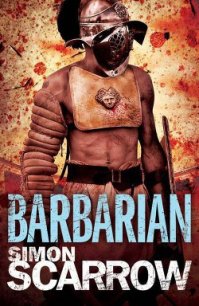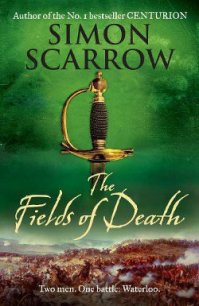Young bloods - Scarrow Simon (библиотека электронных книг txt) 📗
The retreat across the Gelderland almost destroyed the army. Racked by hunger and sickness, they marched mile after mile on frozen feet. A few miles to the west the columns of the French Army were also striking out towards the coast, and every man in both armies was desperate to the win the race. The prize for the French was not only victory in the field, but the chance to destroy the British Army so utterly that Britain would no longer have the stomach to continue the war. Without the subsidies from British coffers, the Austrians and Prussians would no longer be able to afford to fight. The prize for the bone-weary British troops was merely survival and the prospect of many more years of war to come.With such a disparity in the stakes it was inevitable that the French would win. A few days after the retreat from the Waal had begun Arthur received news that the French had entered Amsterdam on 20 January, adding to their laurels by capturing the Dutch fleet, encased in ice on the Texel.
The order came to change direction. Cut off from the ports, the army was forced north, towards the Ysel. The last of the rations had been eaten days before and every morning Arthur's heart grew heavier as the strength returns of his brigade steadily shrank.
The injured gave in first, collapsing into pitiful heaps by the side of the icy tracks, waiting until the cold claimed them. The marching route was easy to follow, lined as it was with discarded equipment and bodies of men and animals. Hunks of meat had been hacked off the latter by the men passing by, and eaten raw. Arthur's horse shared the same fate on the fourth evening, when its strength finally gave out. He himself shot the animal through the forehead and gave the body up to his men for butchering. As he watched them tear at the carcass Arthur had never imagined such suffering was possible, such a collapse of the civilised values he had taken for granted.
As the brigade approached the Ysel late one afternoon, the sound of firing came from ahead. Arthur halted the column and went forward with Fitzroy. A quarter of a mile down the track a bitter skirmish was being fought out between men from a Guards regiment and Hessian mercenaries, over the contents of an overturned bread wagon that had been discovered just off the road. The two officers watched in horror as the men who had fought beneath the same flag now hacked and stabbed at each other with the fury and desperation of wild animals.When Arthur could take no more he pulled his friend's sleeve.
'Come. We'll have to find a way round this, if our men aren't to become involved.'
Fitzroy did not answer, and when Arthur turned to him he saw that the captain was staring at a bundle of rags in the ditch at the side of the road. Fitzroy's eyes glistened. Arthur let go of his arm and slowly approached the rags, and saw them for what they really were. A young woman, little more than a girl, lay huddled in a ball. Her bodice was unlaced and her bare breast gleamed white as the snow about her. Clasped to her breast was a small bundle, a baby, and on its blue lips gleamed the frozen milk drawn from its mother. Arthur felt a wave of sickness and hopelessness sweep through him. If there was a hell, then this was it. He tore his gaze from the dead girl and her infant and taking Fitzroy by the arm, he walked slowly back to join his men.
Early in March the remnants of the army stood on the quayside in Bremen, under the silent and hostile gaze of the inhabitants of the port. All sense of a common bond in the war against France had fallen away and the former allies now blamed each other for their failures on the battlefield. As Arthur inspected the tattered survivors of his brigade he saw that many of them were broken men, who would be little use to Britain in the years to come. They would return to their homes in the country or the city slums and eke out their lives in the shadow of this terrible experience. But there were others, strong men, who drew themselves up and refused to bow to the suffering that they had endured. As Arthur looked on them, he was grateful that his country could produce such soldiers. For Britain would surely need them in the years to come. At that thought he looked at them again, with pity this time.There was so much more that they would have to endure before their nation eventually prevailed. And when it was all over, and peace returned to the world, how few of them would be left to see that day?
A British fleet of warships lay at anchor outside the harbour, denied permission to enter by the Bremen port-master. And so their longboats plied the long route into Bremen to pick up the survivors of the army. Arthur and Fitzroy boarded the last of the boats to carry the brigade to the ships that would transport them back to Britain. The seamen showed none of their usual rivalry with men from the other service and instead treated them with the compassion of old friends, thrusting ship's biscuits and mugs of ale into their hands as they took them into the warm fug below the decks of the warships. Arthur remained by the rail for a while, staring back at the land as the seaman hoisted the boats back on to their chocks and made the vessel ready to sail.
'Colonel Wesley?'
Arthur turned and saw the ship's captain approaching him from the quarterdeck. They shook hands and then the captain nodded towards the last of the soldiers being shown below deck. 'I was under the impression that we would be taking more of you home from Bremen. Where's the rest of the army?'
Arthur smiled faintly. 'This is all that's left. The rest are gone.'
'Gone?' The captain shook his head. 'What a waste. I wonder what they will say back in England? There will be repercussions.'
'I hope so.We can't afford to fight another campaign like this.'
'Yes, well, of course not.'The captain smiled and patted Arthur on the arm. 'Anyway, it's all over now.'
Arthur shook his head. He felt old and tired and defeated. But even now, his heart burned to avenge that defeat. He had survived the worst that war could throw at him. He had seen the face of battle, witnessed the harrowing torments of retreat, and endured the heartless inefficiency and corruption of those who had mismanaged the campaign. He had survived it all and knew, with all the certainty of a religious conversion, that he was a soldier, and that he had a duty. A duty far more sacred than anything he had experienced in his life so far. He must fight to save his country and, if need be, die in her service. He turned to face the captain.
'Over? No, you're wrong. Quite wrong. It's only just begun.'
Epilogue
The passing of booted feet, horses' legs and carriage wheels up at the window did nothing to distract Henry Arbuthnot as he went about his work. He had become so used to the passing traffic that the window was no more than a source of illumination to him. Arbuthnot had spent the last five years working in this large office in the basement of an anonymous house in Whitehall rented by the Cabinet Office. The rent, like the rest of the costs of this department, was concealed from the scrutiny of parliament. Indeed, very few people were even aware that the department existed at all, and paid little heed to the premises described by a small, neatly painted sign, as the Oriental Ware Trading Company. This obscurity pleased Arbuthnot, since the work of the department was best conducted with as much discretion as possible.Very few of the senior officers of the army and navy had any knowledge of the department's activities, which was ironic, Arbuthnot reflected, given how often their orders were determined as a result of the reports produced by the department for Mr Pitt and his Secretary at War.
Every day Arbuthnot's subordinates sifted through foreign newspapers, dispatches from embassies and coded messages from agents scattered across the known world – an immense amount of detail that had to be scrutinised for any nugget of information of value to those who drew up British policy, and to those who saw that the path of the same policy was smoothed by discreetly deployed bribery, sabotage, misinformation and, occasionally, assassination.




